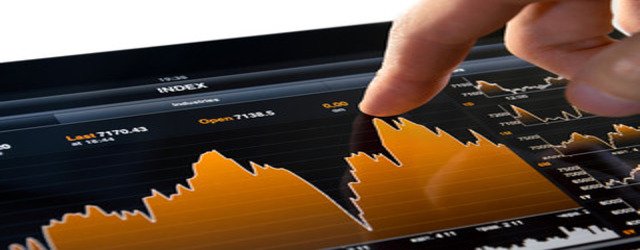Municipal bonds can be bought in one of two ways: You can buy new issues of municipal bonds when they are first bought to market. Or you can buy municipal bonds in the secondary market. A new issue is analogous to an IPO; it is a brand new offering that is sold by underwriters to investors. With municipal bonds, there are a few new issues almost every day; however, there is no consistency in terms of what is or will be available. The act of buying a bond at the time of issuance can be done through a retail order period. Most major brokerages can give you access to new issues.
Buying municipal bonds in the secondary market is going to allow you to choose from a much wider pool of available securities varied by issuer type, maturity years, coupons, and ratings.
With respect to the secondary market, municipal bonds are traded over-the-counter. What this means is that municipal bonds are not traded on an exchange. When you buy or sell a bond, it is being sold or bought by a dealer. Compare this to a stock trade, when you place a sell order, the order simply gets routed to an exchange or market maker to get executed. The broker earns a commission for executing the trade.
The municipal bond market is a dealer-driven market. The bulk of the bonds you see offered for sale via any online bond search are actually owned by dealers. Since the dealers actually own the bonds, the entire market operates on a principal basis. Meaning that dealers buy bonds at one price and offer them for sale at a higher price. This difference is known as a “markup”. The profit a bond dealer earns is the difference between what the dealer paid for the bonds and what the dealer ultimately sells it for.
Many times, online brokerages will have a search function that allows you to search across thousands of bonds. This is usually a search of many different dealers’ inventory. Online brokerages may offer bonds with a flat commission or they may offer them on a “net yield” basis. Most other dealers including specialty bond dealers will almost always offer bonds on a ‘net yield’ basis. ‘Net yield’ simply means that the yield you see for any bonds already includes the dealer’s profit or mark up. For instance, if you see 3.25% yield-to-maturity offered online, the dealer’s profit is already included. There is no commission; you will receive the stated yield-to-maturity of 3.25%.
Other times, an online brokerage might offer a flat commission of $10 or $25 or $50 to execute a trade. This usually means that the brokerage does not own the bonds, but is going to execute a trade on your behalf and buy the bonds from a dealer that owns the bonds. The dealer that is selling the bonds to your online brokerage will be capturing the markup. The markup usually ranges between .25 points to 2 points. For instance, if the dealer bought the bonds for a price of 105 and sells it to you for 106, this would be a 1-point markup. This is less than 1%. The longer the maturity, the less of an impact that markup will have on your yield.
For instance, if this was a bond maturing 10 years from now, a 1-point markup will have approximately .1% impact on your annual yield. For example: Let’s say that the bonds if priced at 105 yields 3%; if the bonds were marked up by a point to 106, the bonds would now yield 2.9%. One-tenth of one percent per year is not significant.
Since all bonds that are traded in the municipal bond market carry a markup at either the wholesale level or the retail level, don’t get hung up on markups or dealer’s profit. A low commission may sound nice, but the actual yield you will be getting should be your only concern. It is more important for you to learn how to select bonds properly.
Your goal is to get the best yield you can on any given bond given the bond issuer, credit quality, coupon, maturity date, and other features. This should your highest priority. Understanding what you are buying and how much yield you are getting is paramount.
















